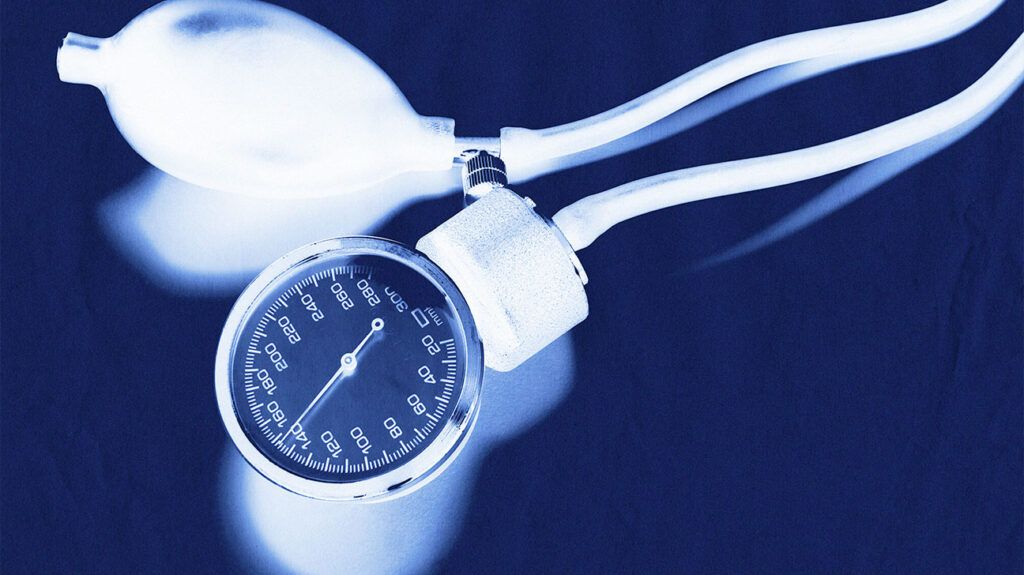- Researchers say people who took tirzepatide saw a significant reduction in their blood pressure over 36 weeks.
- Tirzepatide, which is prescribed for type 2 diabetes (Mounjaro) and obesity (Zepbound), is being studied for its effects on cardiovascular conditions as well.
- The new findings further support the potential role of the drug in treating a host of conditions, including high blood pressure, obesity, and diabetes.
Researchers are reporting that people who took tirzepatide, a type 2 diabetes and obesity medication, showed a significant reduction in blood pressure levels after 36 weeks.
They reported their findings in a
Tirzepatide, which was originally indicated for the treatment of diabetes and sold under the trade name Mounjaro, was approved for the treatment of obesity under the name Zepbound in November 2023.
Due to well-established links between obesity and cardiovascular conditions, researchers are taking a closer look at how tirzepatide and similar drugs, such as semaglutide (Ozempic and Wegovy), known as GLP-1 RAs can impact heart health.
Tirzepatide is a combination of GLP-1 RA and
In their research letter, the scientists said that blood pressure improved in people who took tirzepatide over 36 weeks, compared to study participants who took a placebo.
However, the researchers said they did not establish a dose-dependent improvement, meaning that individuals who took more of the drug did not see better results than those who took less of it.
Additionally, it is also unclear from the research whether blood pressure decreased solely due to weight loss or if there was an additional mechanism at work due to the medication.
Experts do say that the findings hint at further benefits of the drug beyond diabetes and obesity.
“These are statistically significant and clinically meaningful reductions in blood pressure,” said Dr. Matthew Alexander, an assistant professor of medicine at Vanderbilt University Medical Center in Tennessee who wasn’t affiliated with the research.
“Reductions in ambulatory blood pressure in this sub-study provide key evidence for blood pressure lowering with tirzepatide,” he told Medical News Today. “This included reductions in not only 24-hour and daytime blood pressure but also nighttime blood pressure, which has additional important prognostic significance.”
The blood pressure research was a sub-study of the SURMOUNT-1 trial, a randomized, placebo-controlled trial investigating tirzepatide’s effects on weight loss. The trial was funded by Eli Lilly and Company, the manufacturer of Mounjaro and Zepbound.
In the sub-study, which was conducted from December 2019 to April 2022, scientists enrolled 600 participants who were given different doses of tirzepatide (5mg, 10mg, and 15mg) or a placebo.
The groups were split almost evenly with about 150 participants in each. The average age of individuals in the study was 45 years old. Most were women (68%) and either white (66%) or Hispanic (25%).
At the end of the study nearly 500 participants in the study had valid blood pressure data to report.
On average, individuals who took tirzepatide lowered their 24-hour systolic blood pressure (the top number in a blood pressure reading) compared with placebo. Specific dosage of the drug affected blood pressure as follows: The 5mg tirzepatide group saw a 7 point decrease compared to baseline while there was a 10 point drop for the 10mg group and 8 points for 15mg.
Tirzepatide also lowered 24-hour diastolic blood pressure (the bottom number) compared to a placebo. The 5mg group experienced a 2 point decrease while there was a nearly 3 point drop for the 10mg group and less than a 1 point change for the 15mg group.
The effects of the drug on blood pressure were apparent during both daytime and nighttime blood pressure readings, researchers said.
Dr. Sun Kim, an associate professor of medicine in the endocrinology division at Stanford Medicine in California who wasn’t affiliated with the research, told Medical News Today that it would have been nice to see a linear association between blood pressure and dosage.
“Because we know that part of the mechanism for blood pressure lowering is due to weight loss, we would expect greater decrease in blood pressure with more weight loss and higher dose of tirzepatide… In the current study, blood pressure lowering was greatest with tirzepatide 10mg,” she said.
The study also identified an expected increase in 24-hour heart rate of between 2 and 6 beats per minute respectively for each dose after 36 weeks.
Questions persist regarding whether the observed effects on blood pressure are attributed solely to weight loss or if the drug itself plays a direct role.
“It’s certainly at least mostly a blood pressure effect. It could be that there’s some direct effect of the drug,” said Dr. James de Lemos, a study author and a professor in the Department of Internal Medicine and Chief of the Division of Cardiology at UT Southwestern Medical Center in Texas.
The study utilized
Unlike the more common in-office blood pressure measurement, which only gives a single reading at a single point in time, 24-hour ambulatory blood pressure readings take readings throughout the day and night.
“These are blood pressure machines that you take home with you that measure blood pressure very frequently and give a more comprehensive assessment of blood pressure than office-based measurements,” de Lemos told Medical News Today.
According to the
For individuals with obesity and diabetes, the findings could show promise in tackling a host of serious co-morbidities such as
“We’re entering an era for the first time where pharmacologic treatment of obesity and diabetes may yield tangible benefits in terms of long-term cardiac outcomes,” said de Lemos.
Credit: Source link




